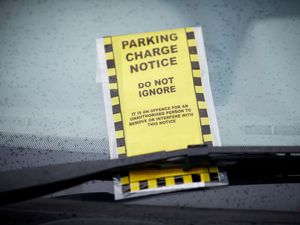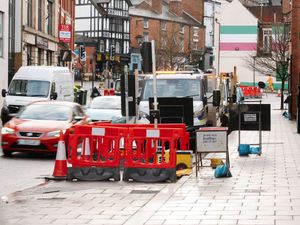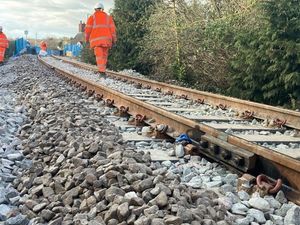Setback will only delay Shrewsbury relief road plans by weeks, council says
The latest setback for the North West Relief Road will only delay the project a matter of weeks, according to Shropshire Council – but that is a message people have heard before.
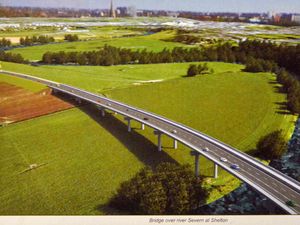
Controversial plans for the relief road have been hit after concerns were raised by the Environment Agency (EA) about its impact on drinking water.
The ongoing saga of the multi-million pound project should not come as too much of a surprise; the process of completing major infrastructure projects across the UK has become increasingly torturous in recent years.
Nearly all are faced with massive and constantly increasing costs, significant levels of opposition and threat of legal action, and deadlines that seem to drift by, one after the other.
Shropshire Council’s plan for Shrewsbury’s North West Relief Road ticks all three boxes, and while the latest development will have opponents rubbing their hands – and saying ‘I told you so’, officers and councillors at Shirehall could be forgiven for bashing their heads against the wall in frustration.
The EA's response to the plan is key – it is a major consultee on the planning application, with an opinion that carries significant weight.
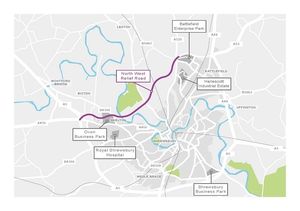
EA planning specialist Mark Davies’s letter to the council says the EA’s concerns centre on the potential impact on Shrewsbury’s drinking supplies from piling work for foundations for the Shelton Rough River Severn Viaduct, and the drainage system on the planned Holyhead Roundabout.
He says: “Having reviewed the key supplementary environmental documents evaluating the potential risk posed by the application to the groundwater environment, our outstanding concerns remain focused on the proposed development within the Drinking Water Protected Area and Source Protection Zones designated around the Severn Trent Water public water supply sources.
“This reflects our concerns about the sensitivity and criticality of the Shelton potable water supply, which is a strategic resource, on which continuity of Shrewsbury’s drinking water relies.”
The proposal has not yet been able to go before a planning committee because the council was waiting for the EA’s opinion on the plans. The EA, for its part, said that it was unable to provide the information without more details from the council. That opinion has now been forthcoming, but it isn’t good news for Shropshire Council – although it says it is confident the issues can be resolved and that the plan can go to a planning committee this summer.
But, if there is some scepticism over the council’s optimism it would not be a surprise.

The proposal had originally been due to go before committee in late 2021. A series of delays and postponements mean it has still not reached that stage. That’s not to say the issue will even be resolved when a decision is finally taken by the council’s planning committee.
The proposal is likely to have to be considered at a planning inquiry if and when Shropshire Council does approve the scheme – with the threat of future legal challenges also looming on the horizon.
The council is fully committed to the project – with the current Conservative leader, Councillor Lezley Picton, saying it should have been completed years ago.
Speaking to the Shropshire Star earlier this year she said: “I have not changed my view. The North West Relief Road is required to continue that loop – it should have been built 40 years ago.”
She added: “It is required to move traffic out of the town centre. That traffic is there now, we just need to be able to deal with it better.”
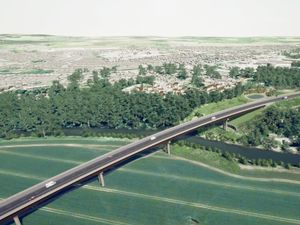
Councillor Picton has said the plan is vital to address the traffic issues within Shrewsbury, and will also help boost the economy.
She has also said she believes a ‘silent majority’ are in favour of the proposals.
Shrewsbury Chamber of Commerce supported the scheme back in 2021, while Shrewsbury & Atcham’s Conservative MP, Daniel Kawczynski, has repeatedly spoken of the importance of the project.
Despite that, there have been more than 4,500 objections submitted – while Shrewsbury, Ludlow, Bridgnorth and Oswestry Town Councils all want the proposal scrapped.
Campaigners have repeatedly questioned the environmental impact of the plan, arguing that the council should not be considering a project which is likely to perpetuate the use of cars.
All the delays with getting planning approval also ignore the significant cash-hungry elephant in the room. The scheme was originally expected to cost around £81 million – with £54.4m coming from the Government, £28.5m from Shropshire Council, and £4.2m from the Marches LEP.
The issue is that those costings date back to 2018. General inflation and recent hikes in the prices of utilities mean the project will certainly be more expensive if it goes ahead. How much more expensive is still not entirely clear, although we have some idea.
In October last year Mr Kawczynski MP wrote to the Department of Transport asking for extra funding to cover the expected overspend – requesting £27.25m, which he said would cover 75 per cent of the increase in costs. At that stage the Government responded by saying that no decision would be taken on extra funding until the full business case for the project had been received – which can only be completed after the project has gained planning permission.
Whatever happens, all eyes will now be on the next deadline – with the council hoping the application will be considered by the planning committee early in the summer.

